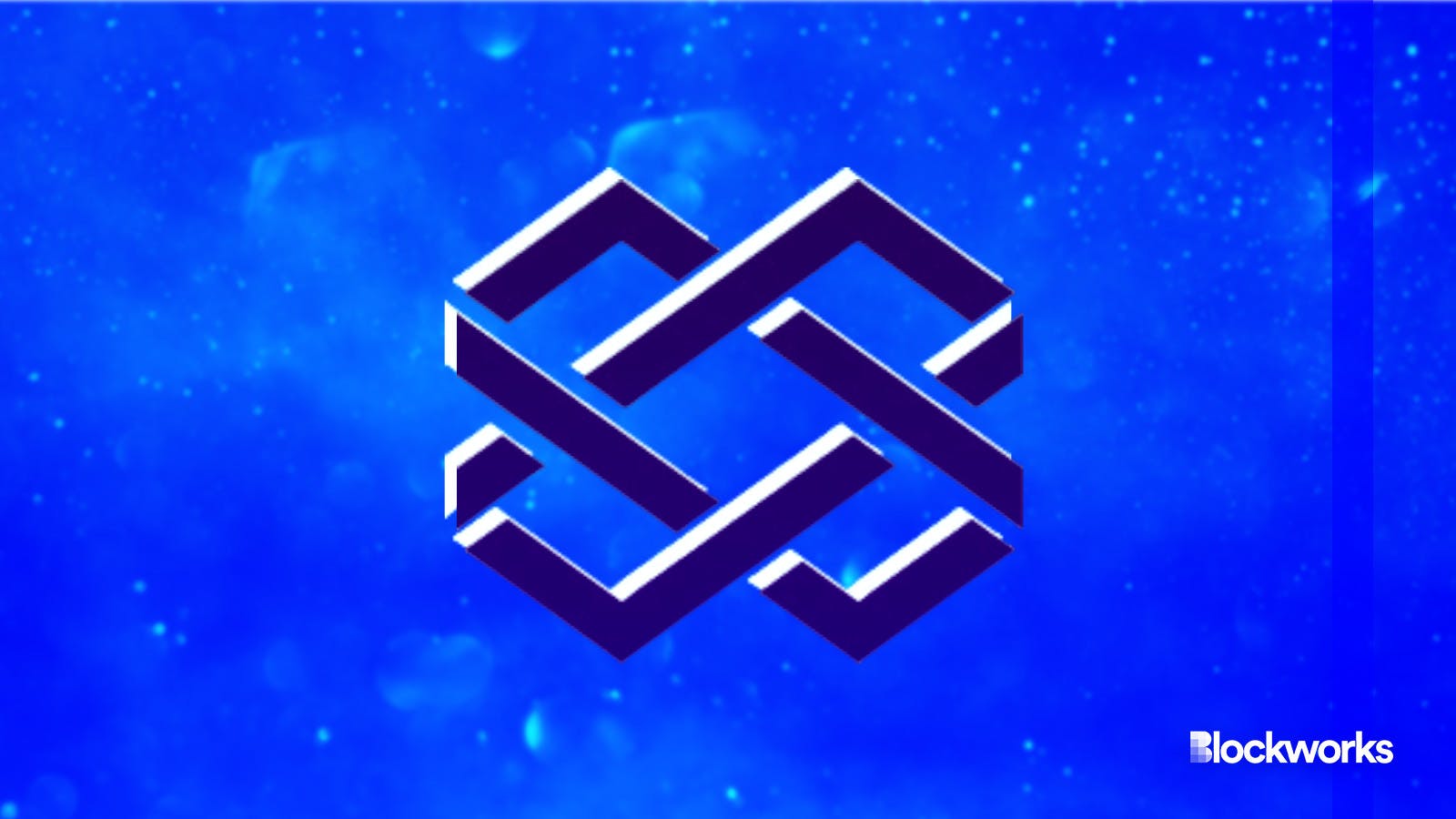‘The Polyverse Testnet’ is live, bringing IBC to Ethereum
Polymer is one step closer to bringing Cosmos SDK technology to Ethereum through its latest testnet launch

Polymer and Adobe Stock modified by Blockworks
Polymer, an Ethereum rollup that is hoping to become Ethereum’s interoperability hub, has launched the Polyverse Testnet, becoming the latest team hoping to tackle blockchain interoperability.
The testnet will be launched in three phases dubbed ‘Basecamp,’ ‘Into the Unknown’ and ‘Discovery.’ The first phase, Basecamp, will be live starting today and is designed to incentivize developers to facilitate liquidity onto the testnet from other rollups.
Phase 2, Into the Unknown, will commence the following week, where Polymer will select a handful of decentralized apps to promote to end users, who will also be able to receive rewards. Then the final phase, Discovery, will focus on refining and optimizing incentive mechanisms to drive participation.
The blockchain interoperability problem
Like many cross-chain messaging and bridging protocols today, Polymer was created to solve the issue of blockchain interoperability.
Read more: Interoperability isn’t just a buzzword
Blockchain ecosystems today remain relatively isolated from one another, meaning they can not communicate or interact with each other — creating terrible user experiences for their customers.
An example of this in Web2 would be being unable to send emails from your Gmail account to an Outlook account.
To address the communication barrier, cross-chain messaging protocols and other interoperability solutions have sprung into life as a means to enable blockchains to safely transfer valuable information to each other.
This type of infrastructure is critical to blockchain scaling, as evidenced by the attention and interest it has received from investors.
Wormhole, one of the largest cross-chain messaging solutions today, secured $225 million in a private token sale, which saw interest from Brevan Howard, Coinbase Ventures and Multicoin Capital late last year.
Similarly, LayerZero locked in a seven-figure Series B fundraise, where investors from a16z, OKX Ventures and Sequoia Capital gave the protocol $120 million to expand its operations.
Polymer also recently revealed that it acquired $23 million to bring Cosmos SDK’s inter-blockchain communication (IBC) protocol to Ethereum.
Read More: Polymer Labs secures $23M to bring IBC to Ethereum
Polymer’s approaches to interoperability
Unlike many interoperability protocols today, Polymer is not designed as a third-party bridge but rather as a layer-2 Ethereum rollup solution that serves a similar purpose to the ‘interoperability hub’ on Cosmos. It aims to provide IBC to Ethereum and connect with other layer-2 solutions.
IBC, unlike many other interoperability solutions today, is not a bridge application but a network standard, Devain Pal Bansal, a product analyst at Polymer Labs, told Blockworks.
“The biggest benefit of introducing it to Ethereum, particularly Ethereum rollups, is that it extends the capabilities of how a rollup settles on Ethereum via the native bridge and extends it cross rollups – without a third party required to attest to data or its validity by simply using the shared source of truth for all rollups – Ethereum,’ Bansal said.
Tommy O’Connell, a senior product manager at Polymer, explained to Blockworks that applications can build their own bridges and control inbound and outbound messages using a layer-1 trust layer. This eliminates the need for an additional trust assumption of a third party.
“This also allows us to be focused on enabling chains to join Polymer’s ecosystem of chains with just a SINGLE connection to the hub, mitigating Polymer being a blocker for growth,” O’Connell said.
This differs from Wormhole, for example, which relies on a 13 of 19 supermajority to attest to a message before it is produced or sent. It is also different from Axelar, which relies on validators for attestations.
It is important to note, however, that Polymer’s minimum viable product (MVP) will be limited to the Base and Optimism at the testnet launch.
Though this is the case, O’Connell notes that there are immediate plans to grow to other OP stack chains and soon after to other chains such as those in the Cosmos ecosystem.
“The primary benefit for OP stack rollups is that we have built an IBC client for OP geth, which enables us to extend the capabilities of native L1<>L2 bridge across rollups. It is particularly appealing because we can unlock other chains built on the OP stack with minimal expansion effort,” O’Connell said.
Get the news in your inbox. Explore Blockworks newsletters:
- The Breakdown: Decoding crypto and the markets. Daily.
- 0xResearch: Alpha in your inbox. Think like an analyst.






